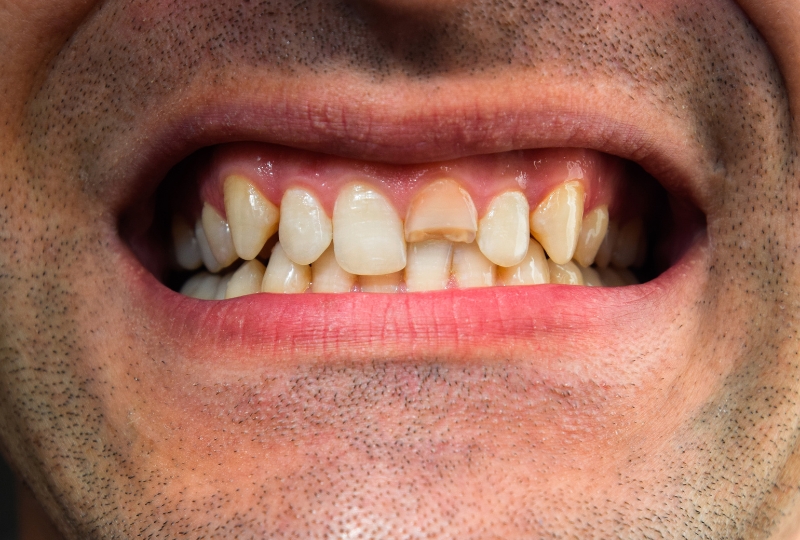
How to Find an Emergency Dentist After Hours: What You Need to Know
Are you biting into something soft and suddenly hear a crunch or a dull toothache that is turning into agonizing dental pain? Finding an emergency dentist after hours might seem like a hassle. Whether you’re dealing with a cracked molar, swelling that won’t quit, or a knocked-out tooth from an unexpected fall, knowing what to do and where to go can be a game-changer.
Read this blog to learn about the different ways of finding an emergency dentist at odd hours to handle your dental problem.
What Counts as a Dental Emergency?
Here’s how to tell if you’re dealing with something that needs immediate attention:
- Persistent or intense tooth pain that interferes with sleep or daily activities
- Swelling around the gums or face, especially with fever
- Broken or knocked-out teeth, especially if you want to save them
- Uncontrolled bleeding from the mouth or gums
- Signs of infection, such as pus, a bitter taste, or pain spreading to the jaw or ear
- Lost fillings or crowns that expose nerves or cause sharp pain
How To Start Your Search For an Emergency Dentist?
You might feel panicked when facing a dental emergency. Here’s how to start your search:
- Many dental offices have voicemail systems that offer emergency instructions. You might be referred to a partner clinic or an on-call provider. Some practices even offer after-hours care themselves.
- Yes, it’s basic. But during a crisis, your phone can help you out. Use real-time maps and reviews to locate open providers nearby. Look for 24-hour emergency dental clinics and urgent care dental centers.
- Not all hospitals have an emergency dentist in Spring Hill, but some do handle dental emergencies, especially those involving trauma, swelling, or infection.
What You Should Ask Before Going?
Not all emergency dental professionals offer the same services or availability. Once you’ve found a clinic or provider, here’s what to clarify:
- Are they accepting emergency patients at the moment of your emergency
- The dental emergencies they treat after hours.
- You need to make an appointment, or do they take walk-ins?
- What payment methods do they accept
- Do they work with your dental insurance plan?
What to Do Before You Get There?
Time matters in a dental emergency. While you’re figuring out where to go, here’s how to stay in control:
- For a knocked-out tooth: Handle it by the crown (top), not the root. Rinse gently and store in milk or saliva. Get to a dentist within 30–60 minutes.
- For swelling or infection: Rinse with warm salt water. Avoid heat, which may make it worse.
- For bleeding: Apply pressure with clean gauze. If the bleeding doesn’t stop, don’t wait; head to the ER.
- For pain: Take over-the-counter pain relief, but skip aspirin if there’s bleeding.
What Sets an Emergency Dentist Apart?
An emergency dentist is equipped to handle high-pressure, unpredictable situations quickly and calmly. Think severe pain, trauma, or infections that can’t wait. The setup is often different from routine dentistry.
Expect things to move fast. Treatment often focuses on stabilizing the issue with:
- Draining an abscess
- Repairing or extracting a tooth
- Temporarily fixing broken restorations
- Managing swelling or infection until a full procedure can be scheduled.
- Once things are under control, they’ll guide you on the next steps, whether it’s a follow-up, prescription, or referral.
Your Post-Emergency Checklist
After the dust settles, don’t treat it like a one-and-done event. Use it as a wake-up call—dental emergencies usually don’t come out of nowhere.
- Schedule a full dental checkup to catch problems early next time
- Keep your records updated, including allergies and insurance
- Ask the dentist about emergency protocols, so you’re never guessing again
- Build a dental first-aid kit with gauze, pain relievers, a small container, and contact numbers
Should You Take Preventive Measures?
While not all dental emergencies can be avoided, many stem from skipped checkups, untreated decay, or nighttime teeth grinding. Regular dental care keeps minor issues from spiraling out of control.
And if you’re prone to sports injuries, consider a mouthguard. If you grind your teeth at night, don’t put off getting a nightguard. Small moves today can protect your precious teeth and gums.
Dental emergencies don’t run on a schedule, but now, you are ready to handle them. Knowing how to find an emergency dentist after hours can help you feel more relaxed. Whether you’re a parent with a teething toddler or someone who just suffered from a cracked tooth, you now have the tools to act fast and wisely.
Next time pain strikes after sundown, you won’t panic. Need help prepping for the unexpected? Schedule a consultation today to get the care you need.



